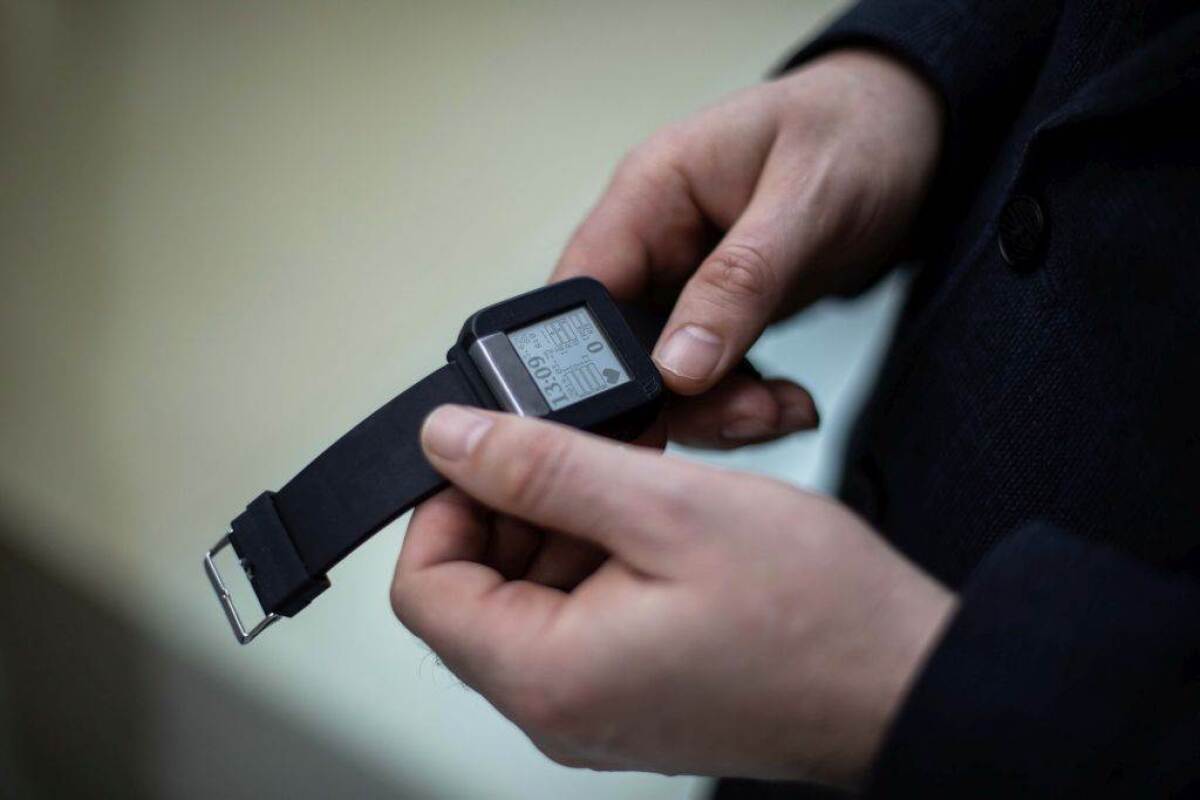Atrial fibrillation is the most common type of irregular heartbeat, potentially leading to serious outcomes such as strokes if left untreated. Unfortunately, it's difficult to detect in its early stages. An international team of scientists is hoping to help, though, with a prototype wrist-worn device.
Being developed in a partnership between Lithuania's Kaunas University of Technology, Vilnius University, and the Vilnius Academy of Arts – along with Sweden's Lund University – the watch-like gadget incorporates both photoplethysmographic (PPG) and electrocardiographic (ECG) sensors. The former optically detects blood volume changes within tissue, while the latter monitors electrical activity of the heart via the skin.
When the PPG detects blood-volume changes that could indicate the beginnings of atrial fibrillation, the device alerts its wearer by vibrating. It also prompts them to activate its ECG with their other hand, allowing that sensor to take a quick reference reading.
The readings from the two sensors are then compared, with special algorithms filtering out irrelevant digital "noise" produced by factors such as body motion. If it's determined that atrial fibrillation is indeed occurring, the user is notified, so they can contact a physician. Once developed further, the device may also be capable of monitoring the heart's response to physical load – a slow response can indicate an increased risk of cardiovascular disease.

Currently, at-risk individuals are monitored for problems via occasional visits to clinics. The scientists hope that by providing continuous monitoring, their simple-to-use device could potentially save lives.
"Due to the prevalence of this condition, every person older than 65 should be checked for atrial fibrillation," says Kaunas lead scientist, Dr. Vaidotas Marozas. "However, relying on the short-term clinical ECG, the arrhythmia can be detected only if the condition is chronic. What if the episodes are occurring only occasionally? Then our technology is very useful."
A previous study has determined that the existing Apple Watch is also capable of detecting atrial fibrillation. It isn't specifically designed to do so, however, plus the scientists believe that older users may be put off by its complexity.
Source: Kaunas University of Technology





